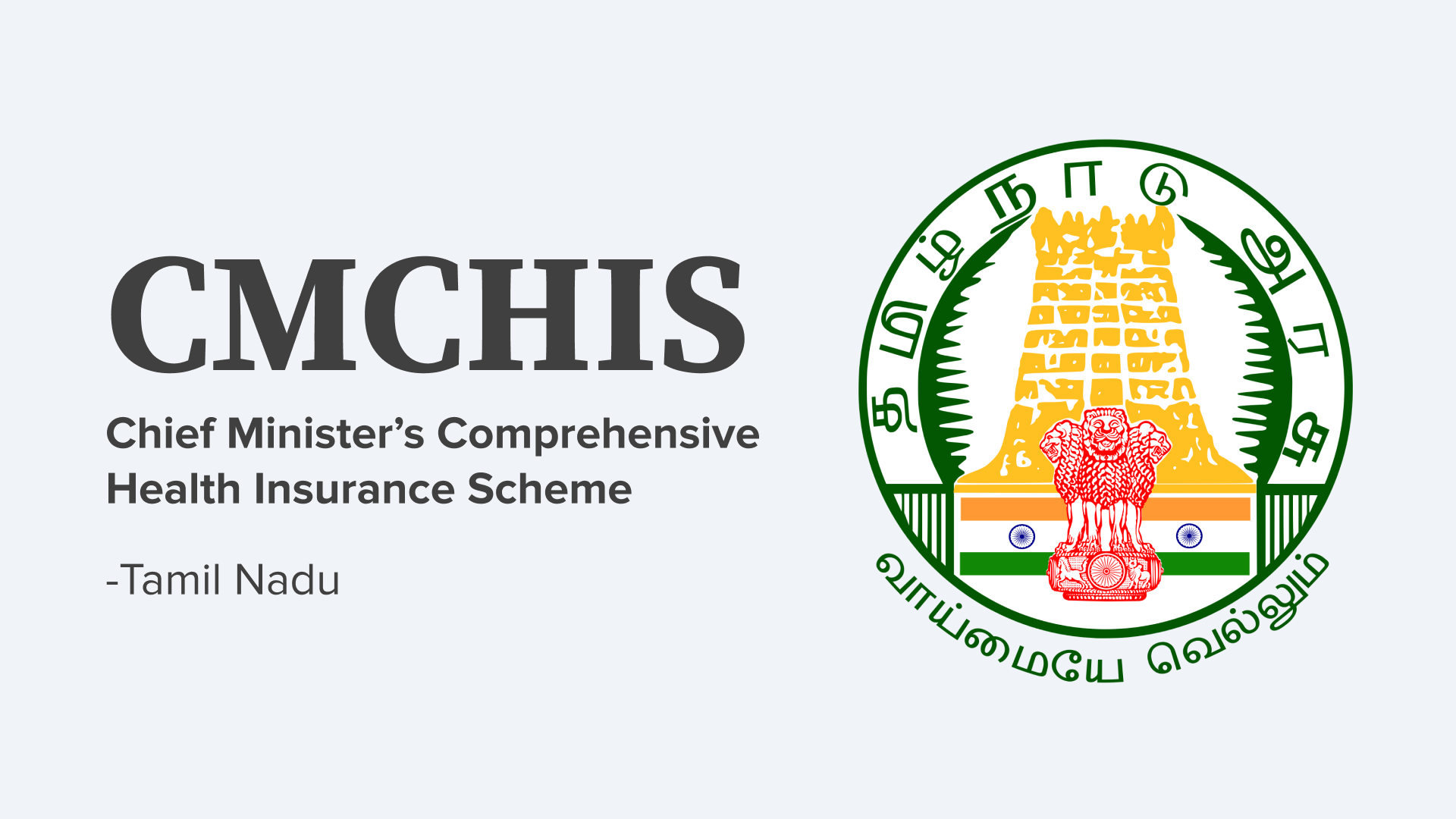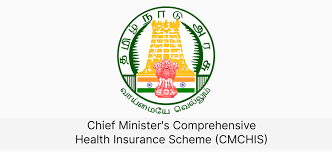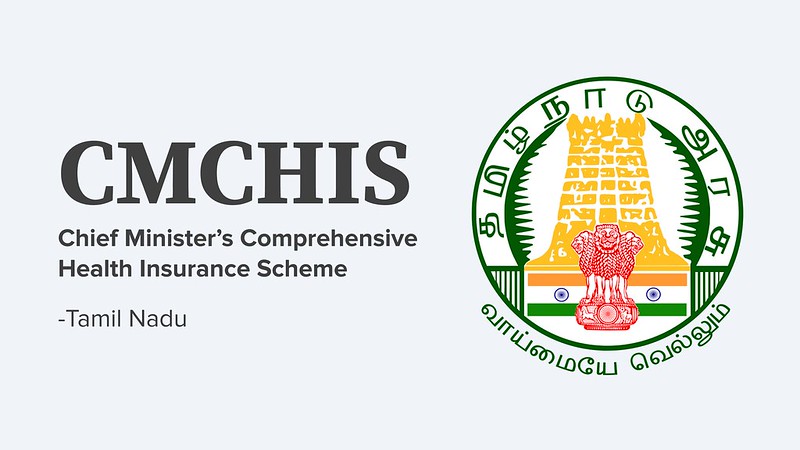
Chief Minister’s Comprehensive Health Insurance Scheme is especially designed for low-income families with an annual income below ₹72,000, ensuring that no person is denied critical healthcare due to lack of money. The scheme enables beneficiaries to receive treatment at empanelled government and private hospitals without paying out-of-pocket, making it a lifeline for lakhs of families in Tamil Nadu. So, let’s know more about Chief Minister’s Comprehensive Health Insurance Scheme.
What is the Chief Minister’s Comprehensive Health Insurance Scheme?
Table of Contents
The Chief Minister’s Comprehensive Health Insurance Scheme, also known as Kalaignar Kaappitu Thittam, is a state‑government health insurance scheme in Tamil Nadu.
It was launched in 2009. The aim is to offer cashless hospitalization for certain medical/surgical procedures and relieve financially weaker families from catastrophic medical expenses. It is implemented through the Tamil Nadu Health Systems Project (TNHSP), in partnership with United India Insurance Company.
Key Features, Benefits & Coverage Of Chief Minister’s Comprehensive Health Insurance Scheme:
Before knowing how to apply, it helps to understand what the scheme offers.
- Sum Insured: Up to ₹ 5,00,000 per family per year, on a floater basis, for covered procedures.
- Procedures Covered: Around 1,090 procedures, including medical/surgical ones. There are also follow-up treatments (≈ 8 follow‑ups) and diagnostic tests (≈ 52) included.
- Empanelled Hospitals: Many government and private hospitals across Tamil Nadu are part of the network so that eligible beneficiaries can access treatment cashlessly.
- Pre‑existing Diseases: Covered from day one — there is no waiting period for pre‑existing ailments under the scheme.
- Follow‑up/Diagnostic Services: The scheme includes follow‑ups after major treatment and diagnostic tests under the listed diagnostic packages.
Who is Eligible For the Chief Minister’s Comprehensive Health Insurance Scheme:
To apply/be eligible under the Chief Minister’s Comprehensive Health Insurance Scheme, you need to meet certain criteria:
- Must be a resident of Tamil Nadu.
- Your name should appear on the family card/ration card.
- Annual family income must be below the threshold — currently ₹ 72,000 per annum. Earlier, the threshold was cited as ₹ 1,20,000 in some sources, but the latest guidelines use ₹ 72,000.
- A self‑declaration by the head of the family is required, plus an income certificate from VAO/revenue authorities, Aadhaar card, etc.
- Family includes spouse, children, and dependent parents of the eligible person. Typically, children are eligible up to a limit (sometimes till they marry or attain a certain age).

How to Apply For the Chief Minister’s Comprehensive Health Insurance Scheme:
Here’s a step‑by‑step guide on how to apply for the Chief Minister’s Comprehensive Health Insurance Scheme:
Obtain Income Certificate:
Get an income certificate from the Village Administrative Officer (VAO) or Revenue Authorities certifying that your family income is below the required threshold.
Gather Required Documents:
Common documents needed include:
- Ration card / Family card (with names of all family members)
- Aadhaar card or other identity proof of family members
- Income certificate (from VAO / revenue dept.)
- Self‑declaration by the head of the family
Visit an Enrollment / Verification Center (Kiosk):
Go to a district enrollment centre / designated verification kiosk. These are often located in the Collector’s offices or other government health offices.
Verification & Biometric Capture:
At the kiosk/center, your documents will be verified. They will capture biometric data (fingerprint, photo, and possibly eye scan) for identity authentication.
Issuance of E‑Card / Smart Card:
Once verification is complete, you receive an e‑card (a health insurance card), which is used for cashless treatment in empanelled hospitals. The e‑card will have a unique number.
Using the Card / Availing Treatment:
When needing treatment under the scheme, you present this insurance card at any empanelled hospital. The hospital will initiate a pre‑authorization request for treatment under covered packages. Beneficiaries will receive treatment without needing to pay upfront for covered procedures.
Follow‑Up & Diagnostic Procedures:
For follow‑up treatments (for chronic or post‑surgery care) and diagnostic tests covered under the scheme, these can be availed per the guidelines. There are specific follow‑up procedure guidelines to be submitted when required.
FAQs:
Q. What is the maximum coverage under the Chief Minister’s Comprehensive Health Insurance Scheme?
A. Up to ₹ 5,00,000 per family per year for covered medical/surgical/diagnostic / follow‑up procedures.
Q. What is the income limit to apply?
A. Annual family income must be below ₹ 72,000 (as per the latest guidelines) to be eligible.
Q. Who all in the family are included?
A. Eligible person’s legal spouse, children, and dependent parents. Children may have eligibility up to certain ages or until they are married, depending on the scheme rules.
Q. What documents are required?
A:
- Family/ration card
- Aadhaar / identity proof for family members
- Income certificate from VAO / Revenue Authorities
- Self‐declaration from the head of the family
Q. Do I need to pay anything to enroll?
A. No scheme premium is required from the beneficiary; it’s government-funded. Enrollment is free, though you’ll need the documents. (Some small verification or biometric processes are part of the routine admin.)
Q. How long does it take to get the e‑card?
A. After verification and biometric capture, the e‑card is usually generated “shortly” (depends on district office/verification center load), and you should be able to use it once issued.
Q. Are pre‑existing conditions covered?
A. Yes. There is no waiting period for pre‑existing ailments; they are covered from day one.
Q. Can I get treatment in any hospital?
A. Only in empanelled hospitals (government or private) under Chief Minister’s Comprehensive Health Insurance Scheme. Verify that the hospital is empanelled before going.
Q. What if a dependent is missing in the family card?
A. It might cause problems in verification/coverage. You may need to have the family card updated to include all eligible members.
Conclusion:
The Chief Minister’s Comprehensive Health Insurance Scheme (CMCHIS) is not just a welfare program—it’s a strong step toward universal health coverage in Tamil Nadu. By ensuring that economically weaker families have access to quality and timely healthcare, the scheme reduces the burden of catastrophic health expenditures and helps in building a healthier society.
If you or your family qualify under the eligibility criteria, it’s highly recommended to enroll in CMCHIS and take advantage of the benefits it offers. The application process is straightforward, and with a valid CMCHIS e-card, you gain access to over 1,000 treatments—completely cashless—at some of the best hospitals in the state. For those in need, this scheme can be the difference between delay and timely care, between debt and recovery.
